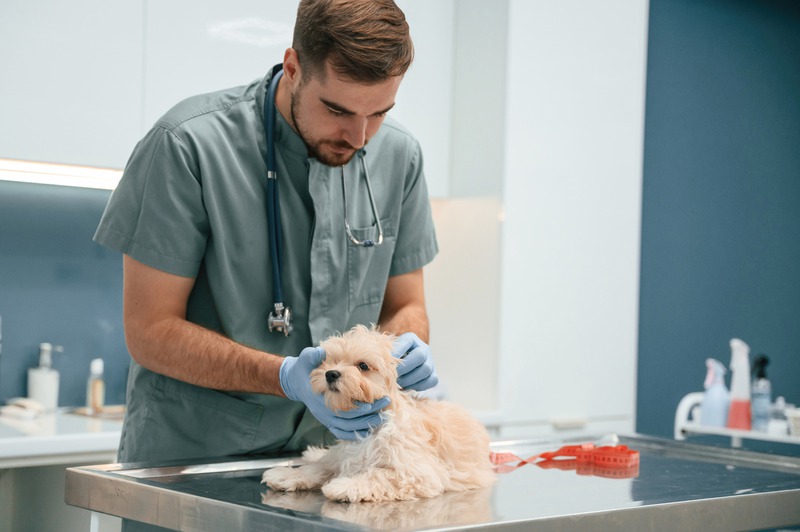Have you ever wondered why your vet suggests lab work during your pet’s check-up, even when they seem perfectly healthy? It turns out there’s a lot more to your furry friend’s well-being than what meets the eye. Understanding the inner workings of your pet’s body is crucial to keeping them in tip-top shape. So, let’s stroll through the garden of knowledge that veterinary lab tests offer and find out what secrets they can uncover about the health of our beloved companions.
Why Lab Work Is Important for Your Pet’s Health
Regular lab work done at a veterinary diagnostic lab in Turlock is a valuable tool in preventive care and an essential part of diagnosing and treating health issues in pets. Tests such as blood panels, urinalysis, and fecal exams can help our vets spot early signs of disease or confirm a diagnosis. Think of it as a detective looking for clues in the most unexpected places. This vital information guides us to give our pets the best care possible and can even extend their lives.
Blood Tests: The Window to Your Pet’s Vital Health
When we talk about accurate animal lab tests, these are often the front-line soldiers. These tests can tell us a multitude of things about our pet’s health status. Here are a few key components typically examined:
-
Complete Blood Count (CBC): This test examines different types of blood cells and can detect conditions like anemia, infection, and several blood disorders.
-
Blood Chemistry Panel: It measures various chemicals and enzymes in the blood and can provide insight into the health of organs like the liver and kidneys.
-
Thyroid Function Tests: These are important, especially in older pets, as thyroid disease is common and can impact their overall body function.
-
Blood Glucose Levels: Keeping an eye on this helps screen for diabetes, a condition that requires timely management.
It’s amazing how a small sample of blood can give us a wealth of information about our pet’s well-being.
Urinalysis: Not Just Taking the Pee
While it may sound less than glamorous, analyzing your pet’s urine is a goldmine for detecting various health issues. It can reveal problems such as:
-
Urinary tract infections
-
Diabetes
-
Kidney disease
-
Liver problems
-
Dehydration
So, as odd as it might sound, that little cup of pee tells us quite a tale about your pet’s health.
Fecal Exams: Cracking the Code on Digestive Health
It’s not the most pleasant topic, but fecal exams are super crucial. They are especially vital for diagnosing intestinal parasites, which can be harmful or even life-threatening if left unchecked. A simple stool sample can help us identify and treat these uninvited guests early on.
When Should Your Pet Get Lab Work Done
We often think of lab work as something that’s only needed when our pets are unwell. However, it’s actually an essential part of a routine health check-up. The frequency of these tests varies depending on a few factors:
-
Age: Younger pets may need less frequent testing, while senior pets benefit from regular checks to monitor age-related conditions.
-
Health History: Pets with chronic conditions or a history of illnesses might need more frequent testing.
-
Medication Monitoring: If your pet is on long-term medication, tests may be needed to ensure the medication is effective and not causing side effects.
Choosing the Right Facility for Lab Work
When it’s time for lab work, it’s important to choose a facility you trust. An excellent option for pet owners is an established diagnostic lab that understands the nuances of lab tests to ensure your pet gets the best care possible.
What If Lab Work Uncovers a Health Issue
Finding out your pet has a health problem can be scary. But remember, early detection is key. Vets can provide comprehensive internal medicine services to manage and treat many conditions effectively. They’ll work with you to create a treatment plan that’s tailored to your pet’s needs, including diet modifications, medications, or even surgery if necessary.
A Closer Look at the Value of Preventive Care
Preventive care is all about keeping problems at bay before they start. This is where regular lab work really shines. It gives us the chance to nip potential issues in the bud and maintain your pet’s health proactively. Plus, it can save you money in the long run by avoiding the cost of treating advanced diseases.
Understanding Your Pet’s Lab Results
Getting the lab results may be overwhelming. Labs often use a lot of medical jargon that may not make sense at first glance. But don’t worry; your vet will explain everything you need to know. They can interpret the data and let you know if any results are cause for concern or whether everything is OK.
Working Together for Your Pet’s Health
Remember, you and your vet are partners in your pet’s health journey. Don’t hesitate to ask questions and raise any concerns you might have. Being familiar with your pet’s normal behavior and physical state can be invaluable in spotting when something’s off and ensuring they get the help they need fast.
Final Thoughts
Lab work is vital in pet care, allowing us to check their internal health, not just outside appearance. It helps pets live longer, happier lives. Vets and techs use it to detect issues early. Responsible owners embrace it to ensure their pets’ well-being. When a vet suggests lab tests, remember it’s key to keeping your pet lively and well. It’s part of being a caring pet parent for a joyful future together.





